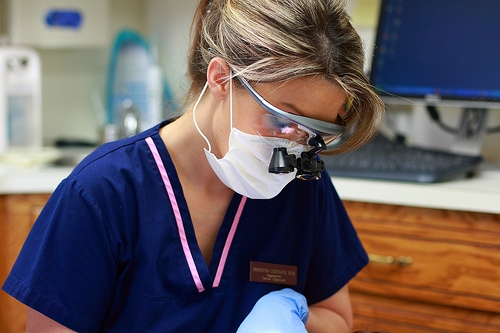
Pediatric dentists strive to make your children’s visits welcoming and worry-free, and, we want the same for you! Ask us about any questions you might have. We are happy to explain procedures, equipment, and sedation options so you know just how safe and comfortable your child’s experience can be. And if X-rays are a concern, we can put your mind at ease here as well.
What Exactly Are X-rays?
Sometimes parents feel reluctant about the process of imaging because X-rays are a kind of radiation. But the fact is, radiation is all around us. We are exposed to radiation naturally from our soil and water, sun and air, as well as from modern inventions such as cell phones, Wi-Fi, and air travel.
Why is radiation so common? Because matter throughout the universe constantly gives off energy, and the energy that is emitted is termed radiation. This radiation takes two forms—as particles (which we don’t need to consider!) and as traveling rays. This second type is known as electromagnetic radiation, created by photons traveling in regular waves at the speed of light.
We are exposed to electromagnetic radiation every day, because, whether we can see them or not, these different wavelengths and frequencies create various forms of light. Radio waves, microwaves, infrared, visible, and ultraviolet light, X-rays, and gamma rays are all part of the electromagnetic light spectrum.
Different types of radiation on this spectrum have different wavelengths and different frequencies, and produce different amounts of energy. Longer wavelengths mean lower frequencies and less energy. Because X-rays have shorter wavelengths and higher frequencies than, for example, radio waves and visible light, they have more energy.
How Do Dental X-rays Work?
An X-ray machine produces a very narrow beam of X-ray photons. This beam passes through the body and captures images of our teeth and jaws on special film or digital sensors inside the mouth (intraoral X-rays), or on film or sensors located outside the mouth (extraoral X-rays). These X-ray images are also known as radiographs.
Why are X-rays able to take pictures inside our bodies? Remember that higher energy we talked about earlier? This energy enables X-rays to pass through the softer, less dense parts of our bodies, which are seen as gray background in a radiograph. But some substances in our bodies absorb X-rays, such as the calcium found in our bones and teeth. This is why they show up as sharp white images in radiographs.
There are different types of common dental X-rays which are used for pediatric exams, including:
- Bitewing X-rays, which are used to check on the health of the back teeth.
- Periapical X-rays, which allow us to look at one or two specific teeth from crown to root.
- Panoramic X-rays, which use a special machine to rotate around the head to create a complete two-dimensional picture of teeth and jaws.
Why Do We Need X-rays?
If all of our dental conditions were visible on the surface, there would be no need for X-rays. But there are many conditions that can only be discovered with the use of imaging—infection, decay, or injuries, for example, can show up as darker areas in the teeth or jaws. Among their many diagnostic uses, X-rays can help us find:
- Cavities between teeth
- Damage to the tooth’s pulp which might require root canal treatment
- Injuries to teeth or roots after trauma
- Abscesses, tumors, or other conditions that might be causing swelling or pain
- Unusual position or development of the teeth before and as they erupt
- Alignment and development of wisdom teeth
X-rays can also serve an important preventative role, by discovering small problems before they become major ones.
How Do Dentists Make Sure Your Child’s X-rays Are as Safe as They Can Be?
First of all, the amount of radiation patients are exposed to with a dental X-ray is very small. In fact, a set of bitewing X-rays exposes us to slightly less than the amount of radiation we are exposed to through our natural surroundings in just one day. Even so, Dr. Maryam Azadpur and our team are committed to making sure young patients are exposed to as little radiation as possible.
Radiologists, the physicians who specialize in imaging procedures and diagnoses, recommend that all dentists and doctors follow the safety principal known as ALARA: “As Low As Reasonably Achievable.” This means using the lowest X-ray exposure necessary to achieve precise diagnostic results for all dental and medical patients.
The guidelines recommended for X-rays and other imaging have been designed to make sure all patients have the safest experience possible whenever they visit the dentist or the doctor. We ensure that imaging is safe and effective in a number of ways:
- We take X-rays only when they are necessary.
- We provide protective gear, such as apron shields and thyroid collars, whenever needed.
- We make use of modern X-ray equipment, for both traditional X-rays and digital X-rays, which exposes patients to a lower amount of radiation than ever before.
- We set exposure times based on each child’s size and age.
X-rays play an important part in helping us make sure your child’s teeth stay their healthiest. If you have any concerns, contact our Simsbury, CT office. When it comes to making sure you’re comfortable with all of our procedures, including any X-rays that might be necessary, we’re happy to give you all the inside information!








